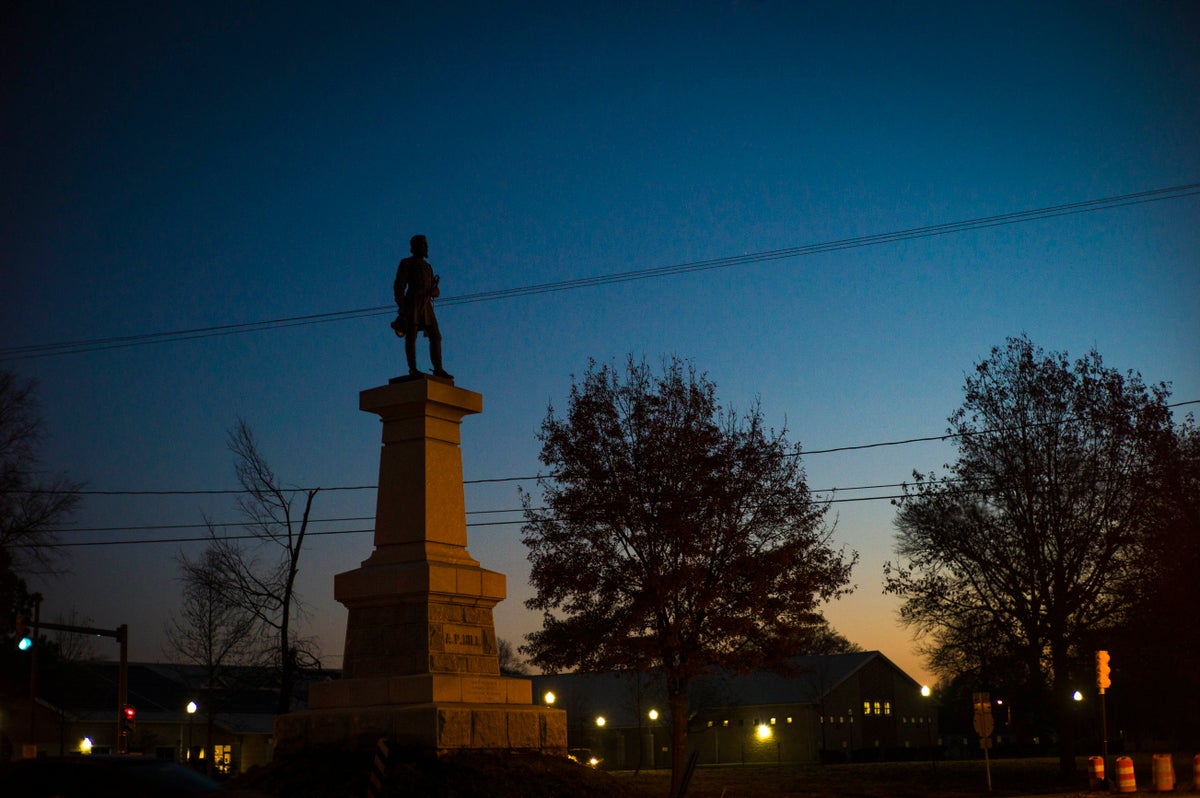
Richmond, Virginia’s final Confederate monument is standing no more.
Authorities in the former capital of the Confederate States of America on Monday morning brought down the statue celebrating the life of Gen A.P. Hill — a Confederate general killed at the Third Battle of Petersburg during the Civil War.
“Over two years ago, Richmond was home to more confederate statues than any city in the United States,” the city’s mayor Levar Stoney tweeted. “Collectively, we have closed that chapter. We now continue the work of being a more inclusive and welcoming place where ALL belong.”
The New York Times reported that a small crowd gathered to watch the removal of the statue.
The rest of Richmond’s Confederate statues had already been removed in the aftermath of the murder of George Floyd and the national uprising for Black lives that followed. Protesters in the city toppled a statue of Confederate president Jefferson Davis, while a statue of Gen Robert E. Lee was removed.
The statue of Hill, which was erected on the site of his death in battle, was the last city’s remaining Confederate statue. The plan for its removal was challenged by a number of Hill’s descendants, who argued that the statue was on a gravesite and that the city did not have the right to move it and Hill’s remains, but an October ruling by Circuit Court Judge David Eugene Cheek Sr. ended that challenge.
The city plans to move the statue to its Black History Museum, where it and Hill’s life can be further contextualised in future presentations. Hill’s remains, in accordance with Mr Cheek’s ruling, will be moved to a nearby cemetary in Culpeper, Virginia.
The removal of the statue marks the end of the Confederate monument debate in Richmond, a city that was once a center of Confederate power but now is plurality Black. The city, like many others, was the site of protests following the murder of Floyd and a broader re-thinking about the role that monuments have played in glorifying the Confederate cause.
In 2020, the state of Virginia passed a law allowing local governments to decide for themselves what the fate of their Confederate monuments would be. Mr Stoney, the mayor, has consistently supported their removal and, in some cases, re-location to education settings.
Conversations about the role of monuments in the United States — which disproportionately venerate white men and warfare — remain ongoing.







